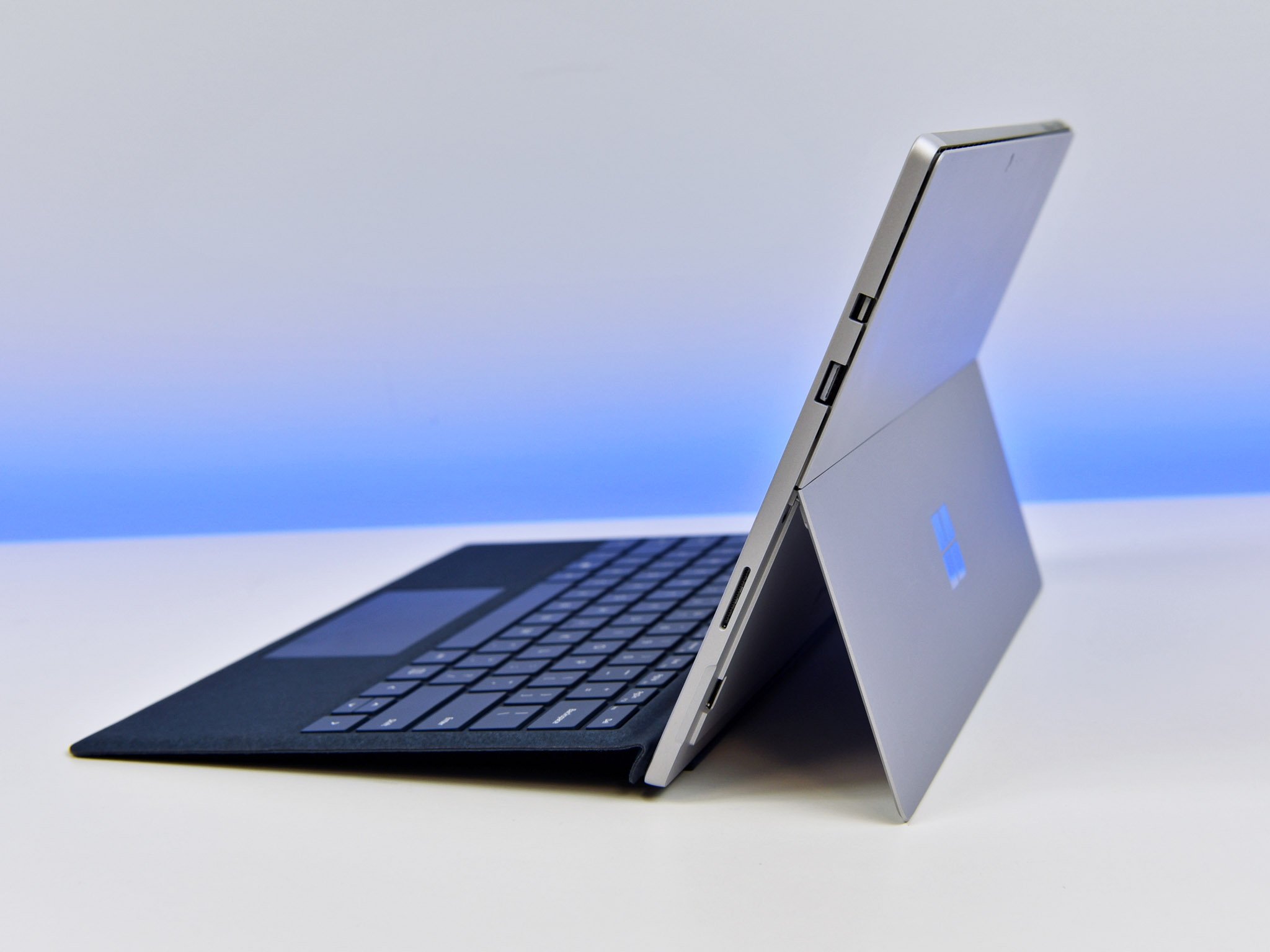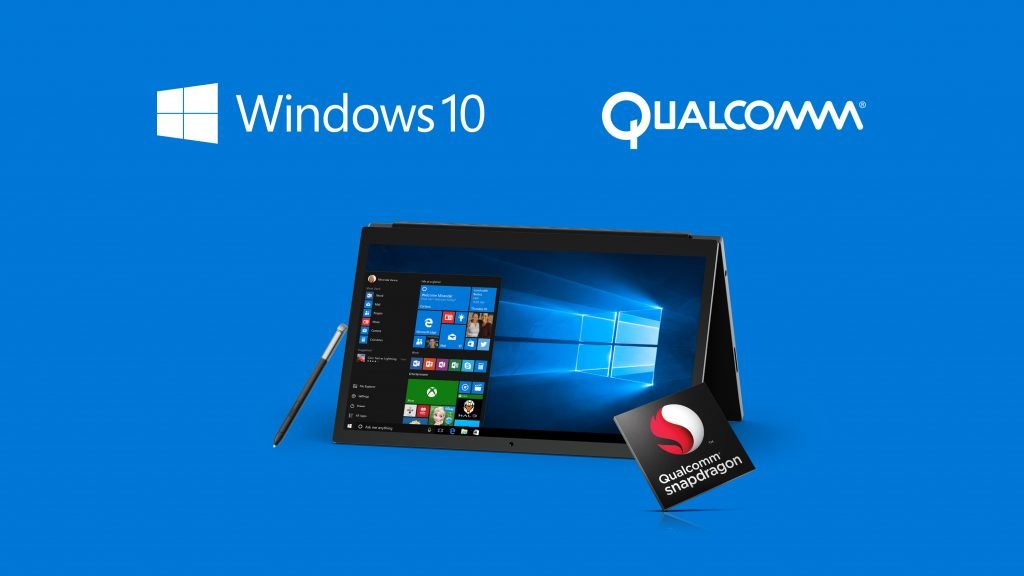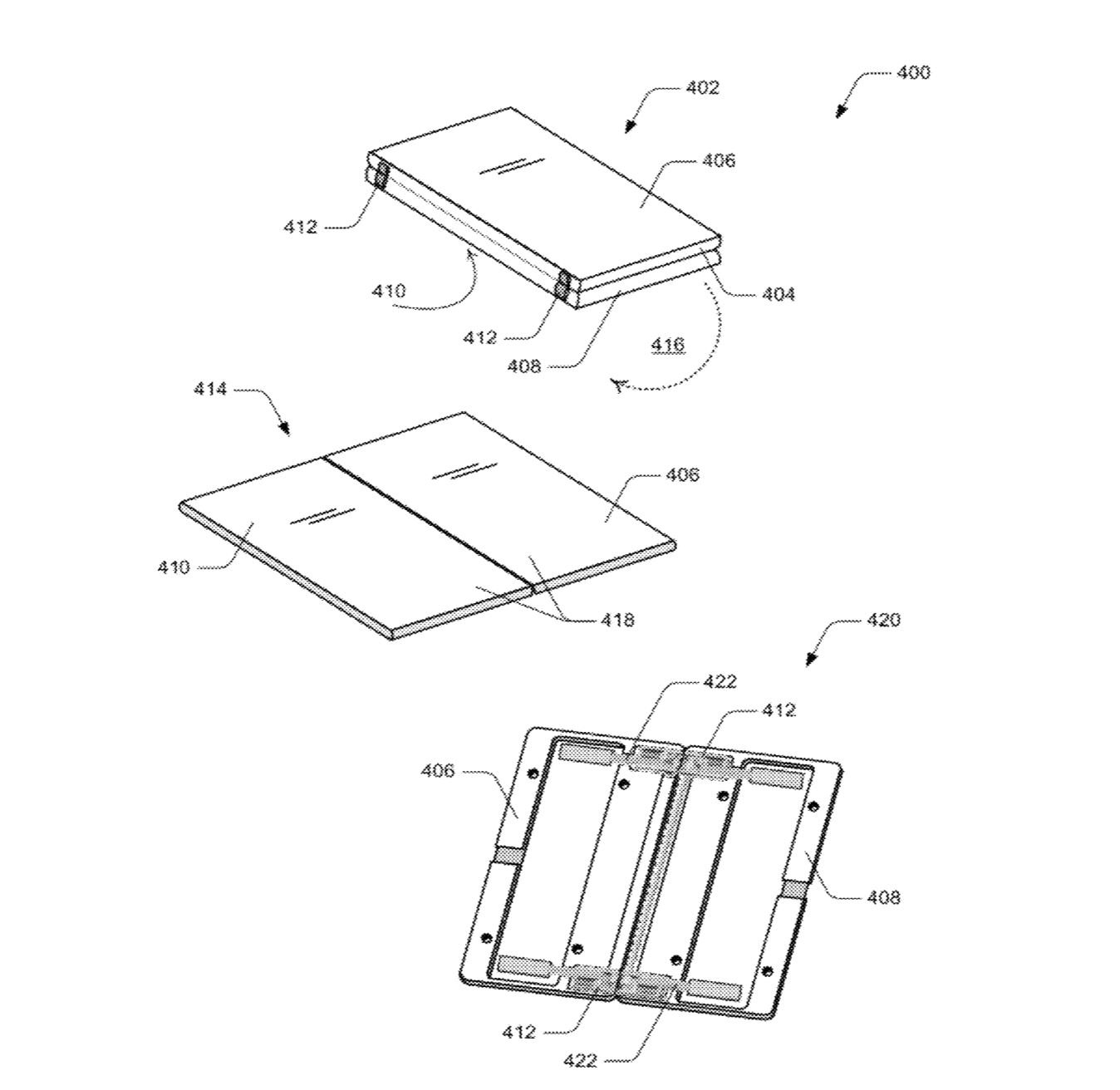For Microsoft, 2018 could be a big year in mobile — but not phones
While Windows phones are dead for Microsoft, the company has planned an ambitious push into mobile for PCs in 2018.

All the latest news, reviews, and guides for Windows and Xbox diehards.
You are now subscribed
Your newsletter sign-up was successful
With the demise of Windows on phones, a spotlight has been cast on Microsoft regarding its place in the mobile world. Microsoft has rightly been criticized for flubbing its phone endeavor, putting at risk one of the pillars of the Universal Windows Platform (UWP) for its app strategy.
Putting that aside, it is interesting to note that Microsoft has a lot on its plate for 2018 with Windows and 4G LTE. While this is not entirely a plan for phones, it does suggest Microsoft has a new strategy to succeed in the increasingly mobile tech world.
A tale of three PCs with LTE

Microsoft has no plans for devices in the smartphone category, but that doesn't mean cellular LTE and 4G are not on the plate.
There are three categories Microsoft is playing up this year that involve 4G LTE:
- Pro: Surface Pro 4G LTE (and other traditional Windows Pro laptops).
- ARM (New): Windows 10 on ARM, a.k.a., Always Connected PCs.
- Foldable (New): Microsoft's rumored "Andromeda" dual-screen tablet.
Microsoft is expected to begin pushing Surface Pro 4G LTE in the consumer space very soon. Previously, the Surface Pro 4G LTE was only available in the business arena, but Microsoft will be offering the device to retail for anyone who wants one.
This isn't the first time Microsoft has had an LTE-enabled Surface (see Surface 3), but it is the first Surface Pro with LTE, and that makes a big difference due to the OS and processing power.
The 'cellular PC' revolution begins: Full Windows 10 coming to mobile ARM chips
All the latest news, reviews, and guides for Windows and Xbox diehards.
Microsoft's Always-Connected PC initiative is also a big deal. For the first time, Windows 10 – the full OS – will run on the same processors found in your smartphone. Early reports highlight the instant-on ability (like the iPad) and battery life that lasts weeks instead of a day.

HP should be the first out the gate with its Envy x2 tablet in early March. Marrying the flexibility of Windows 10 with the efficiency of ARM processors, it is a very intriguing option for those who want a PC with an iPad-like experience.
Interestingly, Always-Connected PCs fit nicely in the middle between a full Intel Core "pro" device and what's rumored to be Microsoft's biggest play in mobile: Andromeda.
Andromeda is a rumored folding tablet – small enough to fit in your pocket, but large enough to get more serious work done – and it's expected to also feature Windows Core OS (WCOS). WCOS is full Windows 10 minus all the "bloat" and legacy support from older Win32 systems, which have no place in the truly mobile world. (We do expect Win32 app support via streaming and eventually local virtualization, plus Centennial apps, however).
While Microsoft is expected to be the first with such a form factor, it's not meant to be a one-off creation. Other companies like Dell, HP, Lenovo and more are expected to follow in 2019 with their own twists on this new category of digital journaling. This strategy mirrors the original Surface initiative to jumpstart the 2-in-1 PC category, which is now one of the most popular in the market.
4G LTE – why now?

Perhaps the most interesting question is why this sudden push? Laptops with 3G and 4G modems have been around for years, though they've been mostly reserved for the enterprise space.
A lot of this has to do with converging technologies and shifting job strategies, including:
- 4G LTE being nearly ubiquitous in significant markets.
- The rise of embedded-SIM (eSIM) technology.
- "Pay as you go" carrier data plans.
- Merging of cellular abilities into Windows 10 (instead of Windows 10 Mobile).
- Demand from consumers and workers for always-connected PCs.
A decade ago, it was common for workers to have a business laptop and a personal one for home. This sharp dividing-line between home and work has mostly eroded for many people.
So-called Millennials and Generation X people are some of the first to enter a highly flexible, almost nomadic work environment. For them, their jobs are wherever they are now. The companies they work for change every few years. A computing solution that reflects that world is increasingly needed.
Smartphones often supplant this requirement for mobile computing, but those devices grew out of a different world with different desires. While they can do a lot, ultimately many must fall back to a "real" PC or Mac at some point. And while those laptops are getting improved battery life the consistent need for Wi-Fi (or using a cellular hotspot) keep them at a distance from smartphones.

The rise of eSIM tech changes the game. Microsoft is expected to let users purchase data plans right through the Microsoft Store later in 2018. The ability to buy chunks of data like one or four gigabytes at a time, versus subscribing to a monthly data plan, will change how people view and consume data on mobile PCs. You'd just buy what you need, when you need it, with no immediate expiration.
Why Microsoft could very well revive the Courier in 2018
Finally, Microsoft's rumored Andromeda device is expected to blur the worlds of smartphones, PCs, and tablets. The new form factor allegedly can act as a phone, but it is not designed around that modality. Instead, it's a foldable, journal-like PC reminiscent of the original Microsoft Courier concept from 2010 but made for a 4G LTE world (and soon 5G).
A mobile world is here

None of this implies that smartphones are going to become unnecessary. But the need to have a more powerful computing option that is also easily mobile, flexible, and gets good battery life is a problem every major tech company is addressing.
Apple has the iPad Pro, which it increasingly positions as a mobile PC and laptop. Google has Chromebooks, as its attempt at a mobile PC, in addition to its Android phones. Microsoft has a three-pronged approach, as outlined here.
None of these strategies (or companies) need to be the winner, but Microsoft certainly seems to have the most comprehensive approach that is slowly coming online. Of course, whether consumers and first-line workers (retail stores, hospitals or manufacturing plant employees) respond to this push remains to be seen, but amidst the chaos of the Windows phone debacle, there is a significant mobile strategy brewing at Microsoft.
For 2018, it should be interesting to see very portable devices that run full Windows 10 hit the consumer market. With three major categories and a concerted push from its hardware partners Microsoft could be in an exciting position. The big question is, as always: Can the company execute properly on a concept that many people currently doubt?
Further reading
- Microsoft 'Andromeda:' Everything we know about the rumored foldable device
- What the future of Windows 10 will look like
- Not sold on a foldable Surface? That's OK — new tech takes time to catch on
- Can Surface Andromeda replace your PC?
- Why Windows 10 on ARM is not Windows RT repeated

Daniel Rubino is the Editor-in-Chief of Windows Central. He is also the head reviewer, podcast co-host, and lead analyst. He has been covering Microsoft since 2007, when this site was called WMExperts (and later Windows Phone Central). His interests include Windows, laptops, next-gen computing, and wearable tech. He has reviewed laptops for over 10 years and is particularly fond of Qualcomm processors, new form factors, and thin-and-light PCs. Before all this tech stuff, he worked on a Ph.D. in linguistics studying brain and syntax, performed polysomnographs in NYC, and was a motion-picture operator for 17 years.
